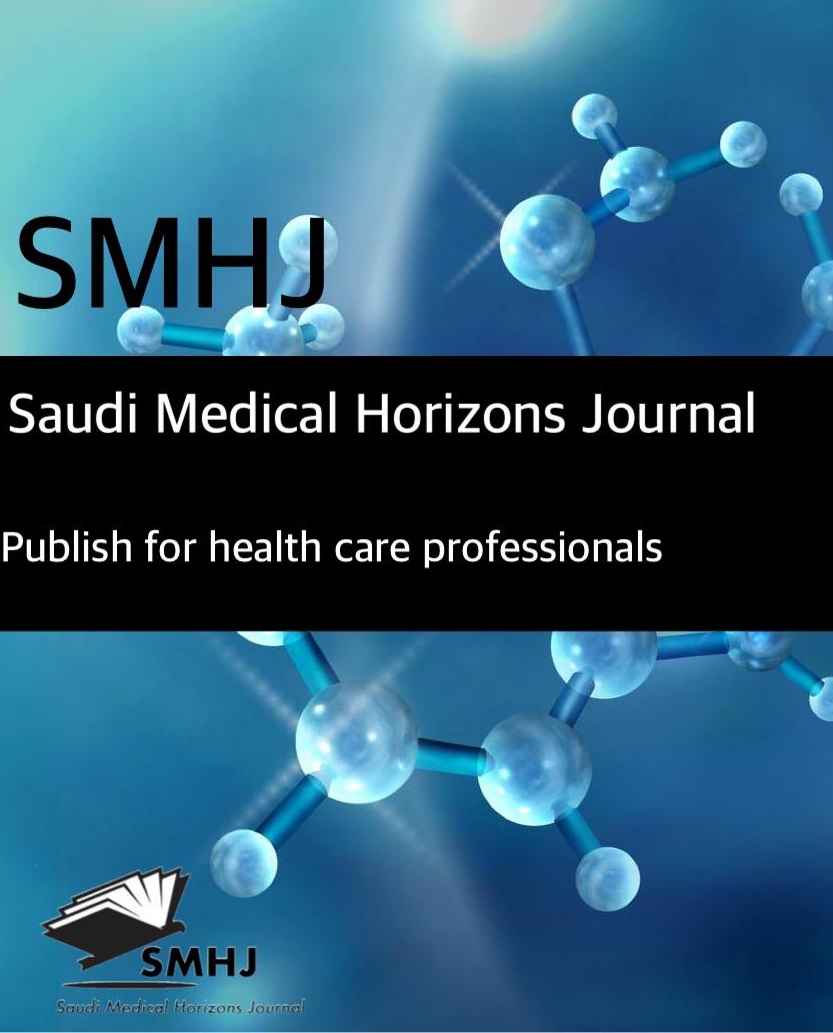The Prevalence of Gastroesophageal Reflux Disease among Health Specialist Students in Makkah, Saudi Arabia
Prevalence of GERD among University students
DOI:
https://doi.org/10.54293/smhj.v2i1.22Keywords:
Gastroesophageal reflux disease, prevalence, risk factors, university students, Umm Al-Qura UniversityAbstract
Background: Gastroesophageal reflux disease (GERD) is considered one of the most common gastrointestinal disorders in adults. It is defined as a condition in which a reflux of gastric content causes symptoms and/or complications. The classical symptoms of GERD are heartburn, regurgitation, sore throat, and cough.
Objectives: The aim of this study is to measure the prevalence of GERD and determine the associated risk factors among health specialist students at Umm Al-Qura University (UQU) in Saudi Arabia.
Methods: A cross-sectional study was conducted using a self-administered survey distributed to students in health-related disciplines at UQU. The survey was disseminated via social-media platforms and 365 responses were received. The survey contained 23 different questions to assess the prevalence of GERD and ascertain if the disease is associated with multiple factors.
Results: A total of 365 students participated in this study. The mean age of participants was 21.6 years, and among the 365 participants, 116 (31.8%) were diagnosed with GERD based on the gastroesophageal reflux disease questionnaire (GERDQ) score. Other findings included that 24 (52.2%) students diagnosed with GERD were smokers (P>0.05), 50 (40.0%) went to sleep one hour after dinner (P>0.05), and 52 (44.4%) had a family history of GERD (P>0.05).
Discussion: Multiple studies have been conducted regarding the prevalence of GERD in Saudi Arabia. One study in Riyadh found that 23% of the sample had GERD, while another one conducted in the south of the country found 40% with GERD.
Conclusion: There is an increased prevalence of GERD observed in this study. The main risk factors identified were smoking, family history of GERD, sleeping one hour after dinner, skipping breakfast, and inadequate sleep. There was no apparent association between GERD and different types of food and drinks.
Downloads
Published
How to Cite
Issue
Section
License
Copyright (c) 2022 Saudi Medical Horizons Journal

This work is licensed under a Creative Commons Attribution 4.0 International License.



